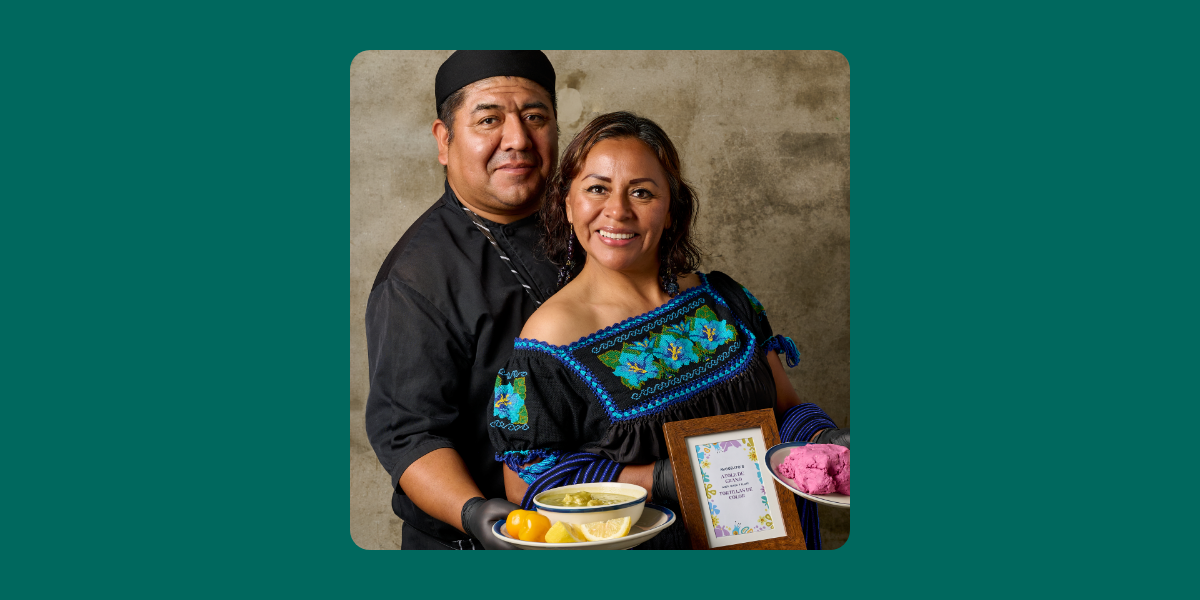December 16, 2024 – San Diego, CA – A new report commissioned by San Diego Foundation (SDF) and developed in partnership with the San Diego Regional Policy & Innovation Center sheds light on significant disparities within the Asian American, Native Hawaiian and Pacific Islander (AANHPI) community in San Diego County.
Comprising 16.2% of San Diego County’s total population, the region’s AANHPI community is one of the largest and most diverse in the U.S. However, these individuals are often treated as a monolith or a group of people who are thought to be the same, which masks the gaps that exist across different AANHPI subgroups.
“As the AANHPI community continues to grow and contribute to the rich cultural fabric of San Diego, we wanted to take a closer look at how we can better serve their unique needs, rather than take a traditional one-size-fits all approach,” said Mark Stuart, President and CEO, SDF. “This report provides the first in-depth look at the disparities between these subgroups and offers recommendations for policymakers, philanthropies and community organizations to better address their diverse needs and enable them to thrive.”
“The report shows that leadership in business, nonprofit and politics locally is growing, but the community needs stronger support and better representation,” said Susan Guinn, President and CEO, San Diego Regional Policy and Innovation Center. “As one of very few female CEOs in the AANHPI community in San Diego, I hope our leaders will invest more in mentoring and uplifting the next generation of leaders.”
Based on data from the U.S. Census Bureau’s 2022 American Community Survey (ACS) and interviews conducted with leaders from San Diego’s AANHPI community, the report was produced for the AANHPI Fund, which enhances the visibility of and advances the leadership of community members in San Diego County. Key findings include:
Health and Food Security
- Cancer is the leading cause of death for Filipino, Korean, Vietnamese and Chinese individuals. Breast cancer is the most commonly diagnosed cancer in women for all AANHPI groups.
- Mental health is an extreme challenge, with suicide identified as the leading cause of death for AANHPI youth, ages 15-24, in California.
- Nearly 50% of Other Pacific Islanders and Cambodians receive SNAP benefits, compared to just 8.5% of White, non-Latino residents in the region.
Cultural Preservation and Integration
- The community speaks 67 distinct dialects, presenting both cultural richness and potential barriers to services.
- More than half (51.1%) of AANHPI San Diegans are first-generation immigrants.
- Older immigrants who are not fluent in English struggle to connect socially and access services, while AANHPI members who were taught only English in the home struggle to participate fully in religious and cultural events.
- Nearly one in three Asian Americans in San Diego report being called a racial or ethnic slur in the past year, underscoring the need for continued efforts to promote inclusion across all sectors of society.
Education and Economics
- 93.7% of Asian Indians hold at least a bachelor’s degree, compared to only 10.6% of Other Pacific Islanders.
- The median income for Asian Indians ($117,587) is nearly triple that of Cambodians ($42,945); the median income for White, non-Latinos is $66,462.
- Homeownership rates range from 74% among Thai residents to just 17% among Other Pacific Islanders (compared to 63% of White, non-Latinos).
Leadership and Representation
- AANHPI-owned businesses contribute significantly to the local economy, generating $5 billion and creating 90,000 jobs in 2021 in San Diego County.
- Political representation is growing, but remains limited, with only four AANHPI individuals having served in elected office in the city of San Diego.
- Community organizations face capacity challenges, including leadership development and accessing funding.
Overall, the report shows that the AANHPI community is a diverse group of people with their own cultures, languages and religions. Treating them as if they have the same goals, priorities and challenges obscures their significant disparities and may hinder effective intervention. Moving forward, programs and policies should account for the various needs, challenges and strengths of different AANHPI subgroups, including investing in culturally and linguistically appropriate services for mental health, social connection for elders and leadership development.
San Diego County has the 7th largest AANHPI community in the country. According to the San Diego Economic Equity Report, the AANHPI population in San Diego has increased 20% since 2020 and, by 2030, most of the county’s foreign-born residents will be from Asia.
The full report can be found at SDFoundation.org/AANHPIReport.
The AANHPI Fund will raise funds from the community and grant to AANHPI-led and/or -serving nonprofit organizations in San Diego County. The fund was designed in partnership with community leaders, supports and celebrates giving from the community, and targets critical needs in the community. The AANHPI Fund was created with a $2.5 million endowment from SDF.
Media briefing recording for the State of San Diego AANHPI Report: https://bit.ly/SD-AANHPI-Report
About San Diego Foundation
For nearly 50 years, San Diego Foundation has been inspiring enduring philanthropy and enabling community solutions to improve the quality of life in our region. Our strategic priorities include advancing racial and social justice, fostering equity of opportunity, building resilient communities, and delivering world-class philanthropy to realize our vision of just, equitable and resilient communities. Since our founding in 1975, SDF and our donors have granted $1.8 billion to support nonprofit organizations strengthening our community. Join us in commemorating 50 years of impact – and looking toward the next 50. Learn more at SDFoundation.org.
About San Diego Regional Policy & Innovation Center
The San Diego Regional Policy & Innovation Center (PIC) is a 501(c)(3) organization established to conduct research and policy analysis to help solve the region’s most pressing problems. Its founding partners include San Diego Foundation, County of San Diego, and the world’s leading think tank – The Brookings Institution. Over the coming years, PIC will continue fostering strong and diverse partnerships among the leaders of the region; use equity-centered research to identify the region’s biggest needs and the best opportunities for change; challenge systemic inequities; and develop a pipeline of sustainable, scalable projects and pilots that improve the lives of San Diegans. For more information, visit sdrpic.org.
Contact
Lorena Nava Ruggero, lruggero@sdfoundation.org, 619-814-1365



